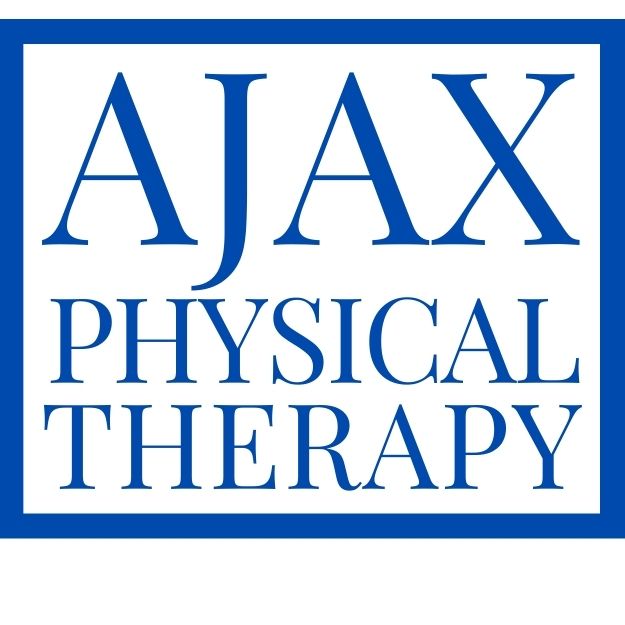
James of HoboHealth worked in private practice before going into traveling PT and believes gaining professional experience is the right move to make before traveling. April of The Vagabonding DPT has had professional success and happiness through becoming a traveler immediately as a new grad. These two traveling Doctors of Physical Therapy from different personal and professional backgrounds have connected to provide you diverse perspectives on travel PT. This is their first blog post together of a series of topics.
What are the advantages of being a New Grad PT vs. being an Experienced PT then going into Travel PT?
 HoboHealth:
HoboHealth:
Professional Experience – I only worked for six months between graduation and starting as a traveling PT. The brief time I worked in private practice before traveling did a lot to shape who I am as a clinician today. Getting just a little bit of experience as a clinician allowed me to become grounded in a healthy work environment before setting out into the less predictable and less stable world of traveling.
Personal Marketability – I believe the little bit of experience I had in private practice prior to traveling gave me a leg-up on other candidates looking at the same jobs. My first traveling job was (primarily) outpatient in a community hospital outside of Boston with other therapists around to help continue my mentorship and growth. Without a little experience, I don’t believe they would have taken on the risk of hiring a near-new grad. Six months in private practice, followed by 10 months at my first travel assignment with strong mentorship set me up for 10 years of positive traveling assignments. Bottomline, if you get a little experience before travel, better employment opportunities are available to you as a traveler.
Vagabonding DPT:
My life was as compact as possible. I already had sold all my furniture and everything I owned fit into my Honda Civic. I was as mobile as I ever would be. If there was any opportunity to travel and explore, now was my moment. I had just spent my 3rd year completing my clinical rotations in Oklahoma City, OK; Salt Lake City, UT; Springfield, MO; and Dallas, TX. I was moving about every couple of months. In essence, my clinical internships provided me the opportunity to live the life of a travel DPT as a student. I was used to learning at a rapid rate and had to learn to adjust to a new city and clinic every few months. Because of this, It was quite an easy transition to go from a DPT student on clinical rotations to a DPT on the road for work.
You have “less” responsibility. As one begins to settle into their career and life (in general), the natural progression is to get settled into a specific location, get married, buy a house, have children or furry kids, and/or take care of ill, elderly parents. Although I think it is absolutely possible to travel with all the aforementioned circumstances, these factors require far more extensive benefit/cost analysis. For myself, I wasn’t married, I didn’t have a house, nor did I have children. So I made the personal decision to take the plunge straight into travel PT for further domestic exploration and adventures!
Money
Although I believe that this shouldn’t be your primary reason for going into traveling therapy. It definitely doesn’t hurt. Students are coming out with a tremendous amount of debt and this is definitely a great way to pay down those student loans.
What are the disadvantages of being a New Grad PT vs. being an Experienced PT then going into Travel PT?
HoboHealth:
When I first thought about this question, my gut reaction was, “There’s no disadvantage! What could be wrong with having more experience going into a job?” …but then I thought of the hardest day of my PT career – the day I had to quit my first job. The day I told my mentor and friend that I wouldn’t be able to work for him anymore was a really stressful day. Quitting a job, especially one that you like, is hard. I can see how someone with the intention to travel could go get a steady job and never end up leaving it. While I do believe strongly in getting experience before traveling, I can see how you risk getting “stuck” in a permanent job. I remember the phrase one of my professors told me to make quitting professional and simple, “It’s an opportunity I can’t pass up.” Remember that phrase, it’s a good one.
Also, the traveling lifestyle is only available to those in the right life situations to have the flexibility to take short-term contracts. Sometimes you have to strike while the iron is hot – waiting to take a permanent job, get several months of experience, and then quitting can shift you into a phase of life where the idea of travel isn’t as easy as it once was. New family obligations, meeting a significant other, and simple logistics like year-long rental leases can obstruct your path to the open road.
Vagabonding DPT:
Mentorship:
Off the bat, one’s initial thought may be the lack of mentorship. There are some travel companies that may market mentorship opportunities. I challenge you to ask them what exactly this looks like. Just being in the same clinic as other physical therapists does not constitute as mentorship. This can be countered by building an army of mentors while being a student. Based on my interests, I’ve inadvertently built an army of specialists from Neurologic PT to Global Health to Nonprofit Leadership.
Mentorship does not have to be limited to our profession. There is something to learn from everyone. Quite frankly, our patients become our first mentors. If you learn to listen intently, they will lead you to the answer. In addition, a firm understanding of other disciplines such as occupational therapy and speech & language pathology can help us maximize our role with a focus on patient-centered rehabilitative care.
Lack of Experience:
James touched upon this and it is true. There will be some jobs that will require that you have more experience than what you have had. However, I secured my second job assignment by highlighting my strengths and experiences in that setting. I applied for a position in inpatient rehabilitation that required 5 years of experience. So during my phone interview, I discussed my experience. I worked for two years as a PT aide in outpatient PT, then did an additional two years as a rehab aide prior to even applying for physical therapy. I also completed two clinical rotations in inpatient rehabilitation. I felt I was more than qualified for the position at hand. I’m glad that the rehabilitation manager was pleased with my response as well because she essentially hired me for the position. I’ve extended my contract since then.
Being a traveler can isolate you from the typical learning and professional development paths that may be available in more traditional PT careers. What have you done or do you plan to do to continue your professional development?
HoboHealth:
Board Specialty
Shortly after completing my transitional-DPT, I soon felt ready to pursue my Orthopaedic Clinical Specialty (OCS). I spent more than a year reading every piece of ortho research I could get my hands on and reading a couple comprehensive ortho books cover-to-cover. The constant studying kept me focused on a fixed goal for quite some time. Specialties through ABPTS are available in variety of practice areas. A couple supervisors on travel assignments have told me they hired me specifically because of my board specialist certification. In total, my tDPT and OCS combined filled the first 4 years of my professional life with a structured, focused learning path.
Some universities are offering post-doctoral learning paths that culminate in sitting for (and hopefully passing) the specialist exams. My alma mater, Northeastern University, offers a Certificate of Advanced Study in Orthopedics. Essentially, you take 5 online classes focused on advanced orthopedic practice, earn college credits, and become more prepared for the OCS exam. Programs like this can help you keep a structured learning schedule that can otherwise so easily fall out of priority while working as a travel PT.
Certifications
Generally, I am skeptical of programs focused on one clinical belief system and the alphabet soup that comes along with them. Courses that all come from a single guru will help you dive deeply into a treatment strategy, but are typically lacking in variety outside of that one strategy. However, as a way to provide a structure for learning towards a final goal, they can be very useful. I currently am about to set out on earning my certification in Dry Needling. Over the next year, I have my learning laid out for me and a fixed goal to be certified in Dry Needling and Cupping by the end of 2017. There are some other great programs available that offer several courses on different topics culminating in a single certification – do be discerning, not all certs are created equal.
Vagabonding DPT:
With the constant change, rapid rate of learning, and high productive expectations expected as a Travel PT, you can get burnt out and/or apathetic as a PT. It is pivotal that you “Be fearless in the pursuit of what sets your soul on fire.” Since graduation, I have done exactly that through social media, leadership positions, national PT conferences, and continuing education courses.
Social Media
I didn’t understand Twitter. I didn’t get the point. However, a few years ago, I ran for the position of APTA Student Assembly Director of Communications and thought that I should get one in the event I got elected and had to manage one. I’ll be honest. I had no idea what I was doing. With the Twitter mentorship of Matt Debole, PT, DPT, OCS and Stephanie Weyrauch, PT, DPT, they opened up a world of passionate students and clinicians from all over the country and the world. I started utilizing pound signs…I mean hashtags and twitter handles in my tweets. A few years later, I had the pleasure of engaging with these professionals virtually and in person.
If you don’t have a twitter account, get one. The best way is to just dive in and follow a few hashtags such as #ChoosePT, #DPTstudent, #SolvePT, #FreshPT, #PTFam and/or #TravelPT, just to name a few.
Still don’t get it? Start one, follow me, then tag me @AprilFajardoPT in your first tweet! Be part of the conversation.
PT Conferences
National Conferences: Have you ever been to National Student Conclave, Combined Sections Meeting (CSM), or NEXT? It’s how the kids say, “lit?” Yesss, LIT!!!! Everyone comes to this conference to learn, but one of the most important aspects of these conferences is the opportunity to formulate connections. If you’ve been active on social media, meet some of those you follow on Twitter at one of these conferences. You get to attend a multitude of receptions based on your interests and involvement from Alumni events to Section events. The exhibit hall is equipped with the latest physical therapy gadgets and with recruiters from every corner of the US. The
International PT Conference: This coming year, I plan on attending the World Congress of Physical Therapy on July 2nd-4th in Capetown, South Africa. I look forward to the opportunity to learn from and engage with physiotherapists around the world. Sounds enticing, doesn’t it? Well, the early registration deadline is November 30th. Join me and check out their website at http://www.wcpt.org/congress.
Professional Leadership
I’ve been on the go as a traveler; however, I’ve stayed engaged through the pursuit of my passions in professional development, engagement, APTA membership, global health, and service. I currently serve as The Academy of Neurologic PT’s membership and public relations committee member, an Early Career Team committee member, and the PT Day of Service’s Global Affairs Chair. My role in all these leadership positions has been location independent. If I can do it, you can too! Not sure where to start? Fill out the APTA Volunteer Interest Pool at http://www.apta.org/VolunteerGroups/ or email the APTA Executive Director of the Section you want to get involved in at http://www.apta.org/Sections/.
Continuing Education Courses
Every state has a different set of requirements for continuing education courses. However, I’ve found that the most helpful courses have been those developed by a specific section of the APTA. I’ve taken a continuing education course on Parkinson’s Disease developed by the Academy of the Neurologic PT. Terry Ellis, PhD, PT, NCS of Boston University and Lee Dibble, PhD, PT of University of Utah taught the course through the integration of the evidence and its clinical application. So if there’s a specific topic you want to learn about, check out what courses are provided by the appropriate APTA section.


 Note: I have included a lot of links in this piece and there is a ton of information beyond this article through those links. If you are a new grad therapist looking into travel, take the time to explore these links. Some are other pieces about new grads traveling, some are about professional development, and some are conversations on the discussion board that are pertinent. Note 2: I’m going to write this post using “Physical Therapist” language, but I believe this topic applies to speech and occupational therapists as well. I feel passionately about this particular post and found myself getting bogged down in language trying to be more inclusive of all therapists – so, forgive me, I really mean all therapists, but as a PT, I just write more gooder when I can write in the terms most familiar to me.
Note: I have included a lot of links in this piece and there is a ton of information beyond this article through those links. If you are a new grad therapist looking into travel, take the time to explore these links. Some are other pieces about new grads traveling, some are about professional development, and some are conversations on the discussion board that are pertinent. Note 2: I’m going to write this post using “Physical Therapist” language, but I believe this topic applies to speech and occupational therapists as well. I feel passionately about this particular post and found myself getting bogged down in language trying to be more inclusive of all therapists – so, forgive me, I really mean all therapists, but as a PT, I just write more gooder when I can write in the terms most familiar to me. After being a traveling PT for 8 years, I sometimes forget that what now seems like a pretty routine process was very intimidating and complicated at first. This post describes what you can expect in the process of getting your first traveling therapy job. I have another page that you can link to under the “
After being a traveling PT for 8 years, I sometimes forget that what now seems like a pretty routine process was very intimidating and complicated at first. This post describes what you can expect in the process of getting your first traveling therapy job. I have another page that you can link to under the “ I don’t mean to say that an immediate new grad can’t travel, it just takes the right person who is willing to self-motivate and work that extra bit to find the professional expansion they need. My first travel assignment was perfect. It was in a community hospital with a steady staff and a solid director. I had the infrastructure around me where I could ask questions and work towards answers with my co-workers’ help. Ultimately, I found the mentorship I needed to grow. Because of the mentorship and support, I extended my contract there several times, a total of 10 months on my first travel assignment (longer than the “permanent” job I worked before traveling).
I don’t mean to say that an immediate new grad can’t travel, it just takes the right person who is willing to self-motivate and work that extra bit to find the professional expansion they need. My first travel assignment was perfect. It was in a community hospital with a steady staff and a solid director. I had the infrastructure around me where I could ask questions and work towards answers with my co-workers’ help. Ultimately, I found the mentorship I needed to grow. Because of the mentorship and support, I extended my contract there several times, a total of 10 months on my first travel assignment (longer than the “permanent” job I worked before traveling).